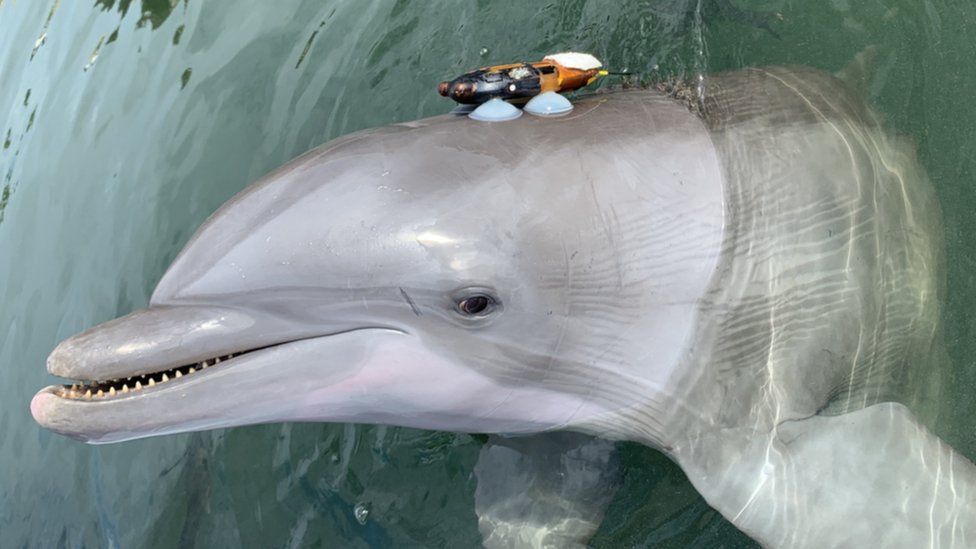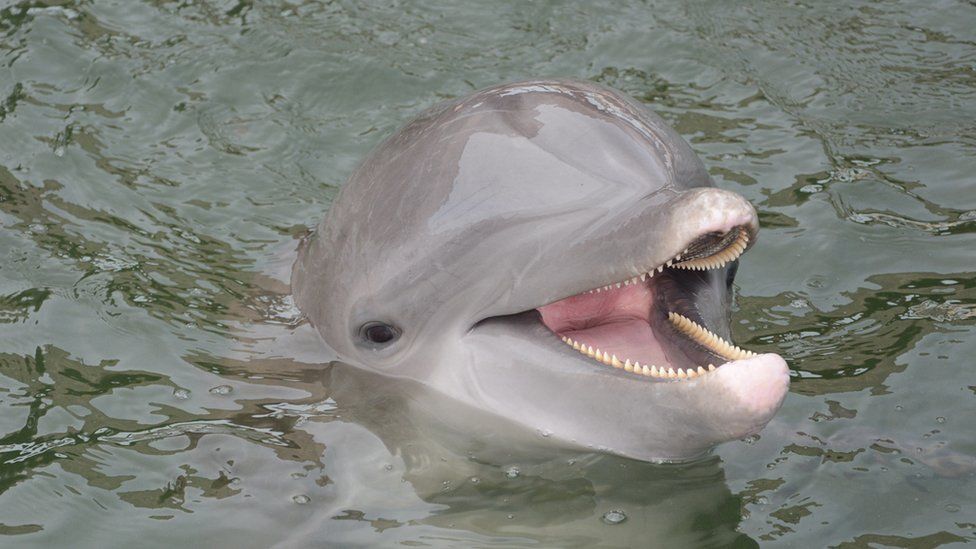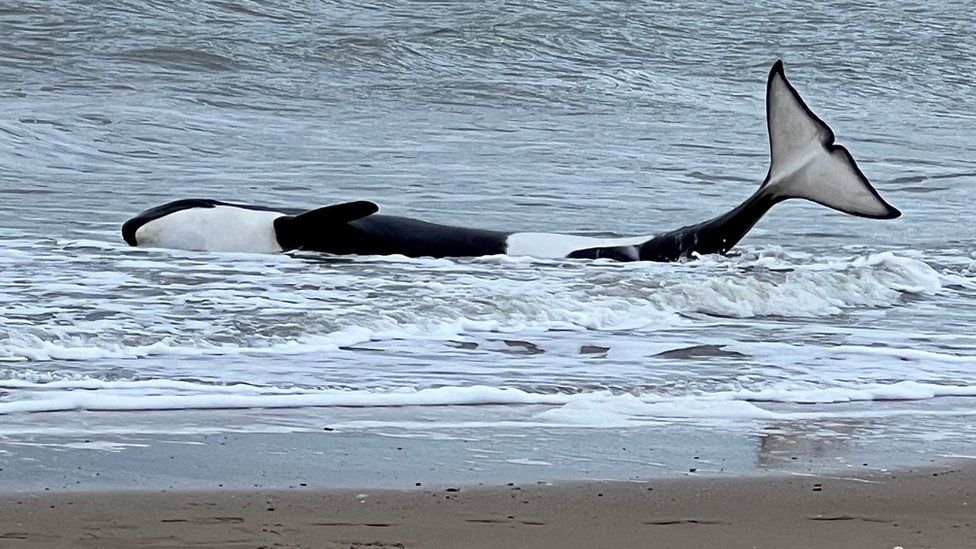Dolphins struggle to hear each other and cooperate in a world of increasing noise pollution, a new study reveals.
They are one of many marine mammals that rely on whistles and echolocation to work together for hunting and reproducing.
But noise pollution from human activity like shipping and construction have risen dramatically in recent years.
If they are no longer able to cooperate it could have detrimental effects, the researchers said.
"If groups of animals in the wild are less efficient at foraging cooperatively, then this will negatively impact individual health, which ultimately impacts population health," said co-author Stephanie King, associate professor at the University of Bristol.
Sound is one of the most important senses for marine animals. Unlike light, which is quickly absorbed by water, it can travel tens if not hundreds of kilometres.
As a result, cetaceans - whales, dolphins, porpoises - have developed a complex range of sounds to "talk" to each other.
It was already known that they will increase the volume of their calls or the frequency to try and compensate for noise pollution caused by human activity.
Pernille Mayer Sørenson, a PhD candidate at Bristol University who led the research team which included the Dolphin Research Centre and St Andrews University, said: "We knew from previous studies that noise pollution impacts animals, but from this study what we do for the first time is look at how noise impacts how animals work together."
The study, published in the journal Current Biology, revealed that the efforts of dolphins to compensate for pollution by "shouting" were not enough and they struggled to work together.
The study was carried out with two bottlenose dolphins Delta and Reese - who goes by the nickname "Reese's pieces" - in an experimental lagoon with their trainers. They were required to perform a cooperative task - in this case each pressing a button within a certain time of each other.
Each dolphin was fitted with a temporary sound-and-movement tag which sits behind their blowhole and measures their behaviour and sounds.
The scientists found that as the dolphins were exposed to increasing levels of anthropogenic (human-created) noise they nearly doubled their whistle durations and also loudness to compensate for this interference.
Reese and Delta were also more likely to face each other. Previous work has shown that this may be because their hearing is sensitive to direction, meaning that facing each other could help separate the signal of their partner and the polluting noise - a process known as "spatial release".
Despite their best efforts though, Delta and Reese were only 62.5% successful when they were exposed to very high noise pollution compared to 85% during the control experiment with ambient background noise.
The highest level of noise they were exposed to was 150 decibels (dB).
The sound produced by a super tanker cargo vessel as it moves through the ocean, will reach volumes of up to 200 dB according to the Natural History Museum.
Ms Sørenson explained why it is a concern if dolphins cannot communicate properly: "If you are exposed to noise and that prevents you from you communicating with your friends when you are foraging together that might lead to missed opportunities and could have an impact on your individual health if that's a certain behaviour that is essential to your survival."
And she warned: "If you are exposed to that over longer and longer time it could have bigger consequences at a population level."
This work adds to existing research linking noise pollution to negative impacts for marine mammals.
Whales have been observed suffering from decompression sickness, behavioural changes and strandings after being exposed to noise pollution from ships, oil and gas surveying and construction.
The next step would be to repeat the experiment for dolphins in the wild, but this is a challenge because of the difficulties in creating a controlled scenario with no noise pollution to compare with.
But Ms Sørensen suspects that wild dolphins would perform even worse when exposed to noise pollution than their counterparts at the research centre.
She said: "These individuals [Delta and Reese] are highly motivated and know this task well - they have done it hundreds of times for previous studies. But if we go out into the wild, if an animal wants to initiate behaviour with someone else, they might not know that its partner wants to cooperate."



Comments
Post a Comment